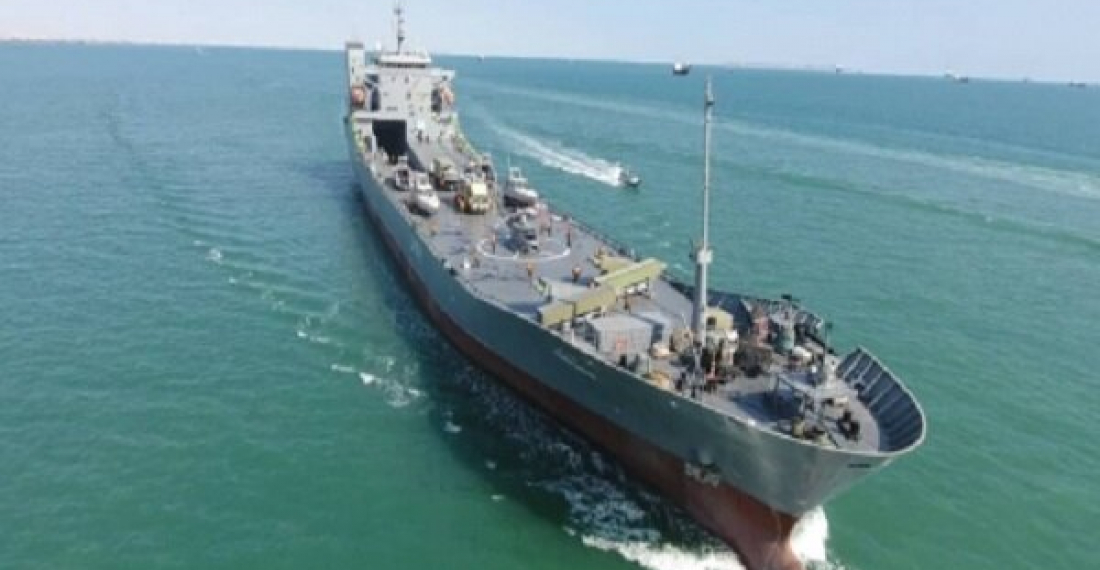Iran has launched a warship which has some characteristics of an aircraft carrier.
In a ceremony which was attended civilians and military officials including the Commander of the Islamic Revolutionary Guards Corps (IRGC) Major General Hossein Salami, the Shahid Roudaki ocean-going warship joined the Islamic Revolution Guards Corps Navy.
The multifunctional vessel is capable of carrying and giving logistical support for jet fighters, aircraft, drones, missile systems, and radars being carried on board, according to Iranian sources.
The 400-ton Shahid Roudaki is 150 meters long and 22 meters wide. It is equipped with three-dimensional radars, surface-to-surface and surface-to-air missiles. It can carry helicopters and operational vessels, all of which have been domestically-designed and made.
Photographs of the ship, named after slain Guard naval commander Abdollah Roudaki, at its launch, showed it carrying truck-launched surface-to-surface missiles and anti-aircraft missiles. It also carried four small fast boats, the kind the Revolutionary Guards routinely use in the Gulf. Sailors manned deck-mounted machine guns. The ship does not appear to have a runway, but includes a landing pad for a helicopter.
The commander of the Revolutionary Guard’s navy, Admiral Ali Reza Tangsiri, suggested his forces wanted to move beyond the waters of the Gulf into deep-water patrolling. Typically, the Guard covers the waters of the Arabian Gulf, while Iran’s navy patrols the Gulf of Oman and beyond. “Presence and assignments in the Indian Ocean is our right,” Tangsiri said.
source: commonspace.eu with agencies
photo: The new ocean going Iranian Warship Sahid Roudaki (picture courtesy of Mehr News Agency, Tehran)







